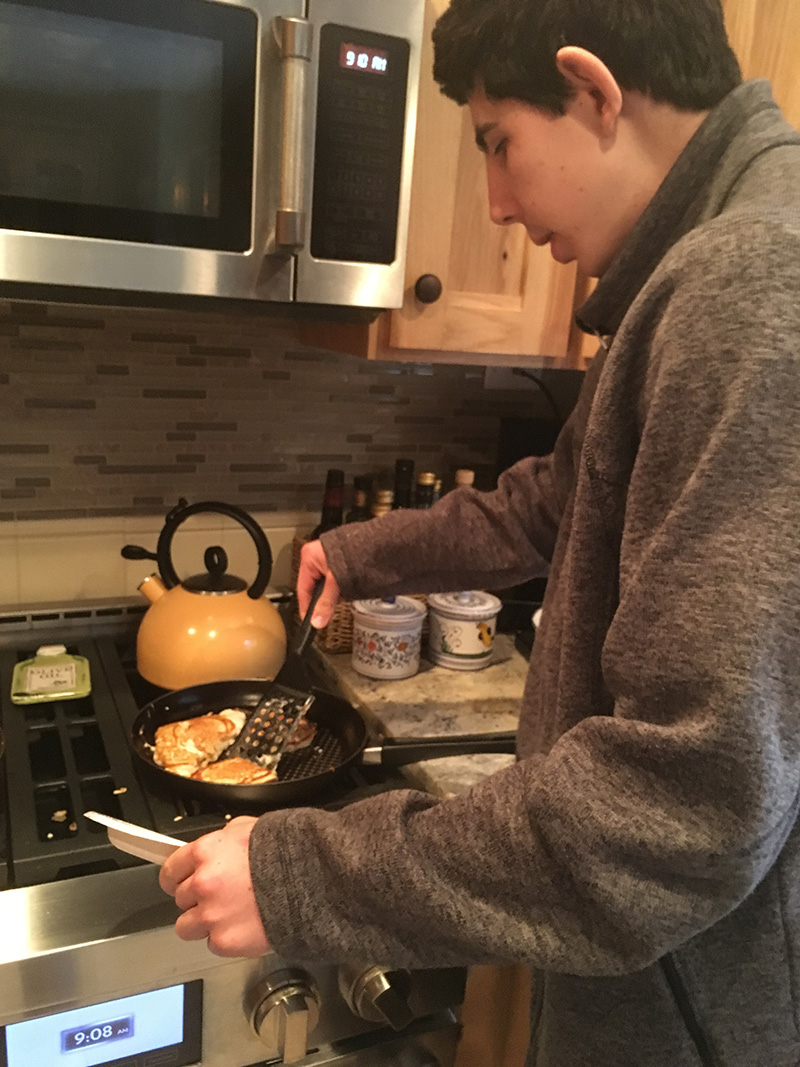 Cookin' like a chef
Cookin' like a chef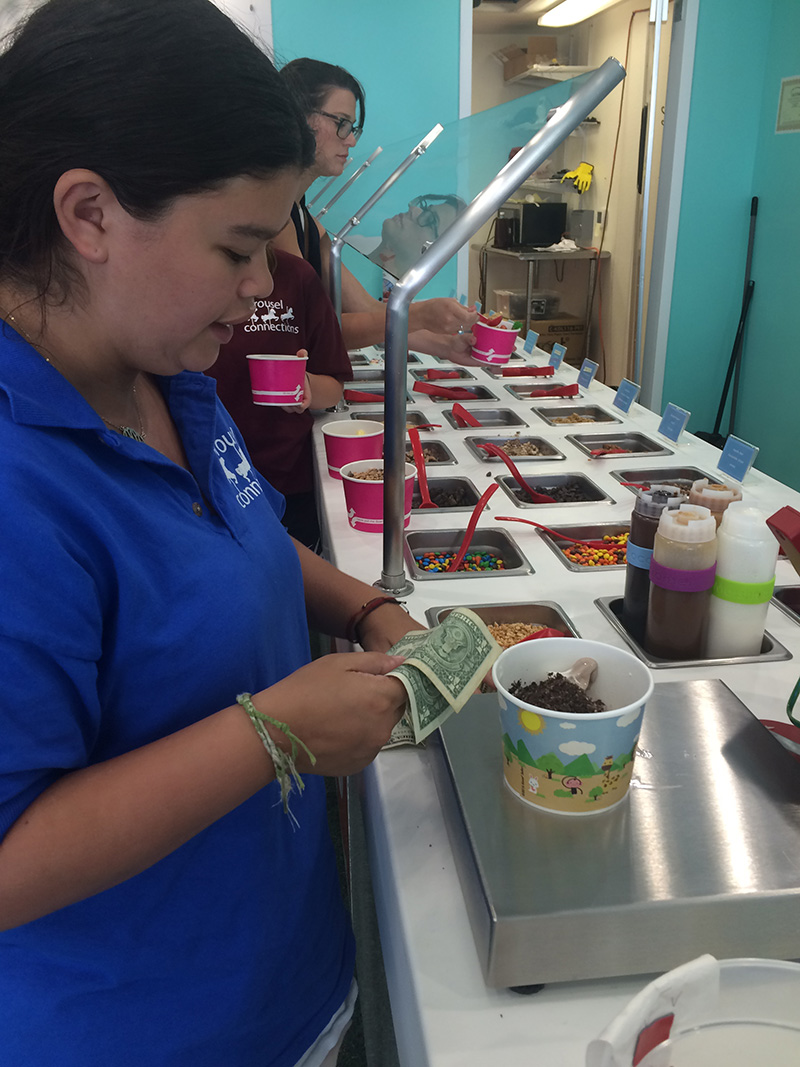 Paying at the register
Paying at the register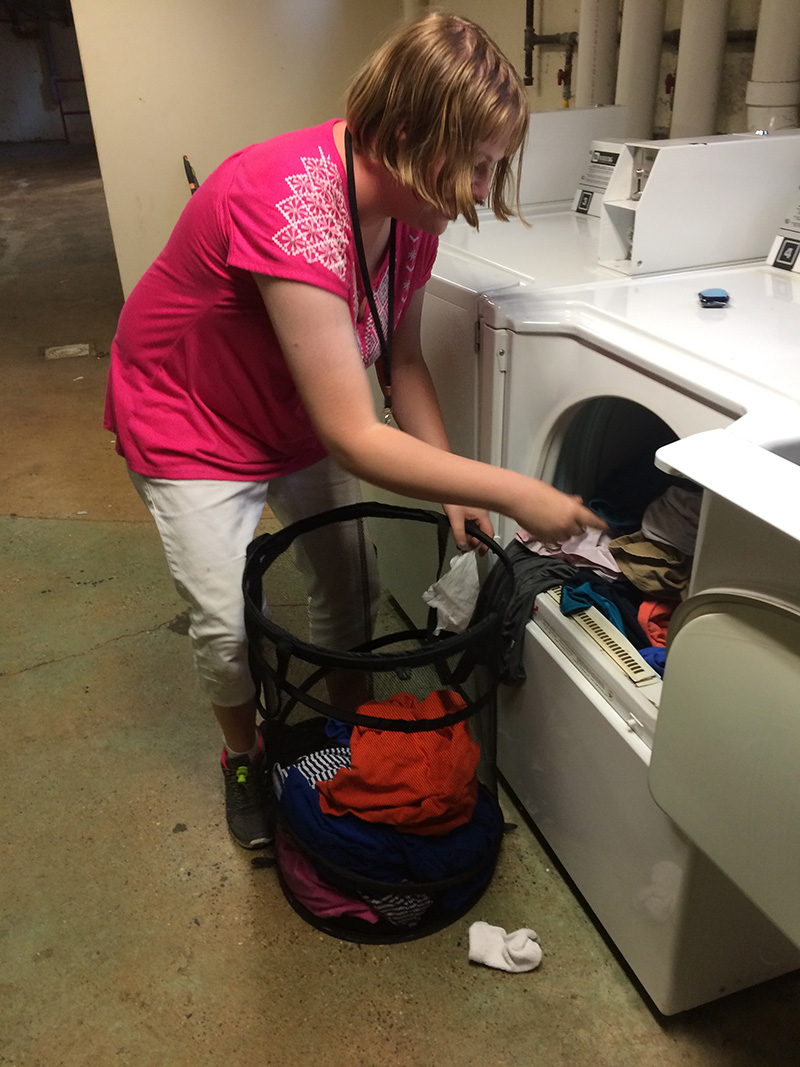 Separating darks and lights!
Separating darks and lights!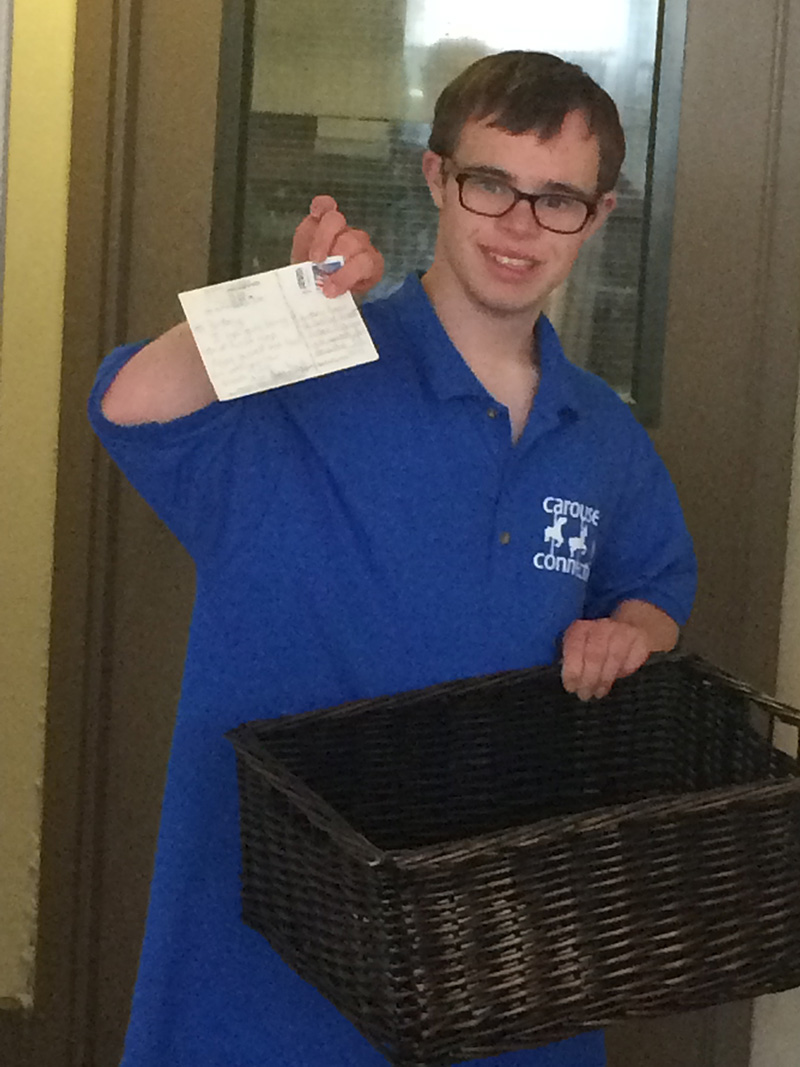 Collecting mail like a champ
Collecting mail like a champ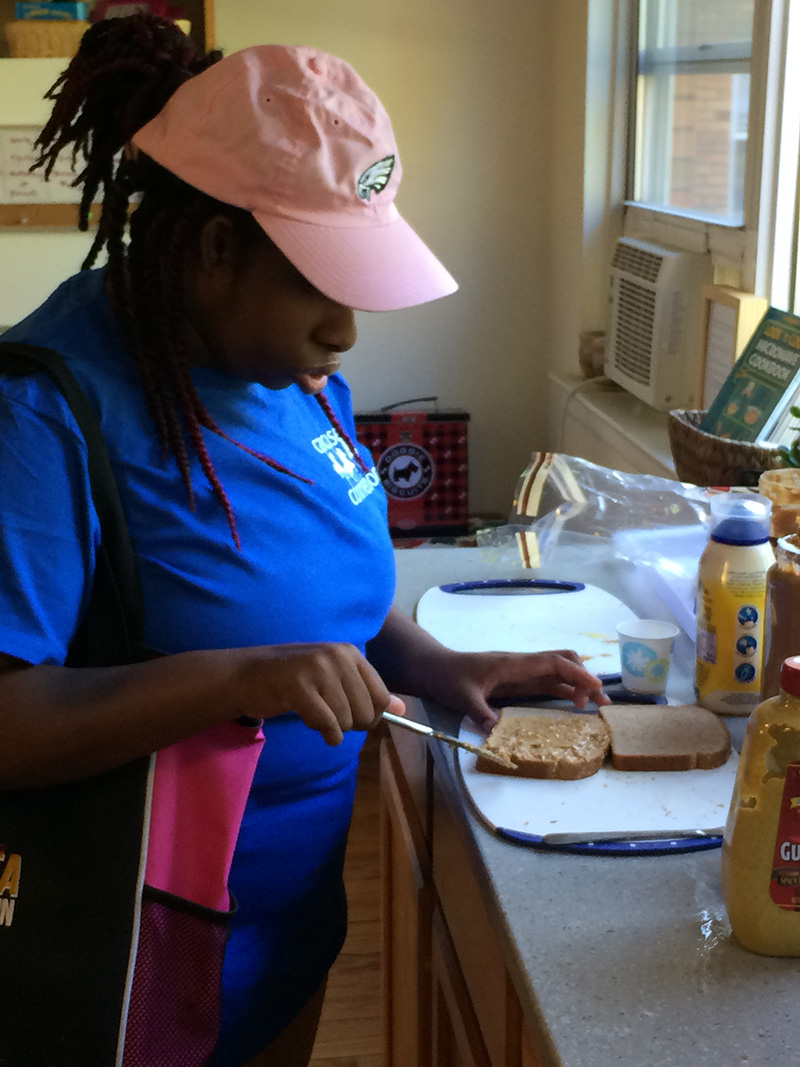 Making lunch, yum!
Making lunch, yum!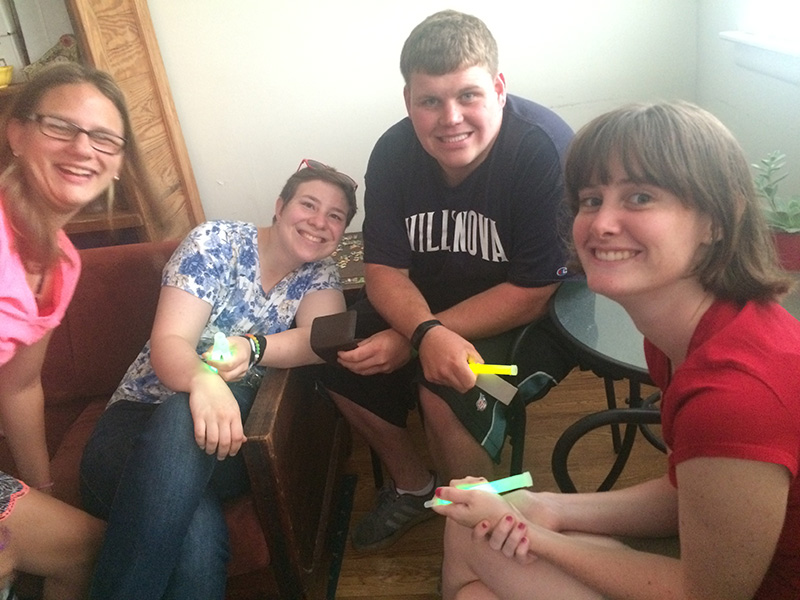 Goofin' off
Goofin' off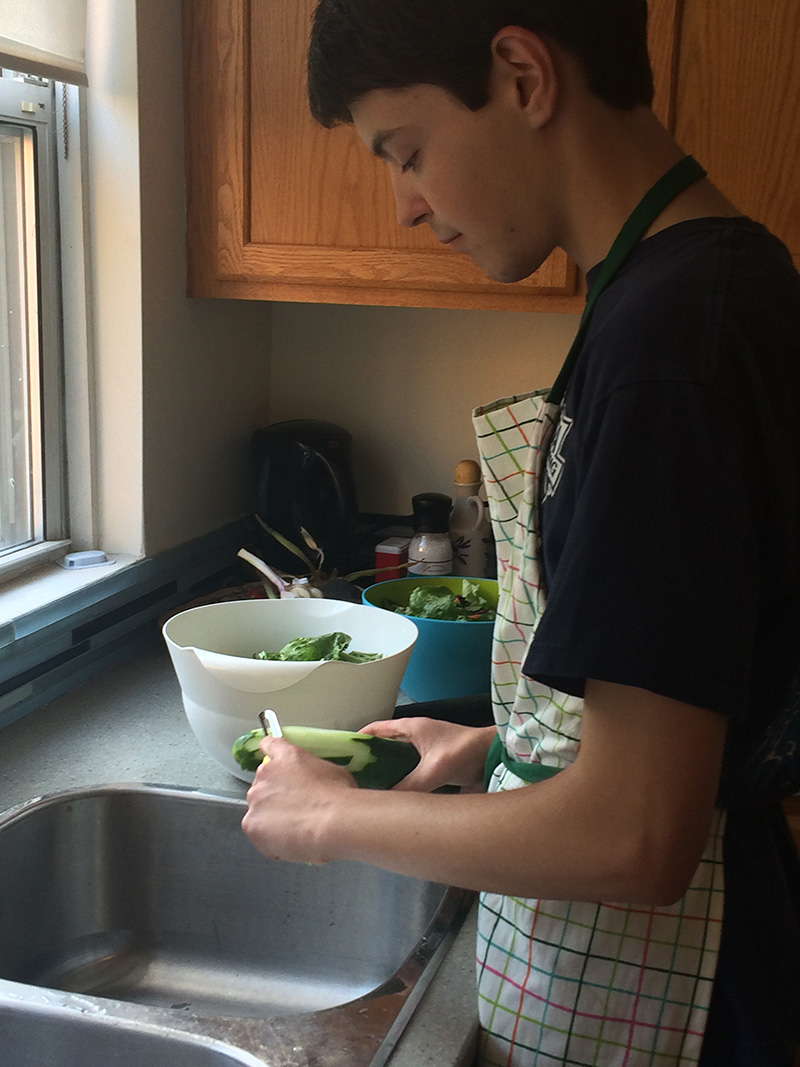 Impressive technique
Impressive technique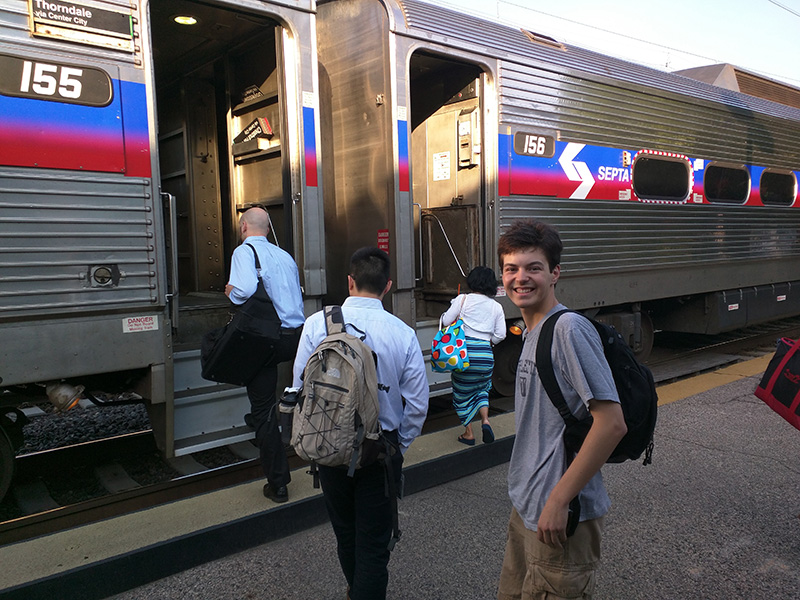 Independent travels
Independent travels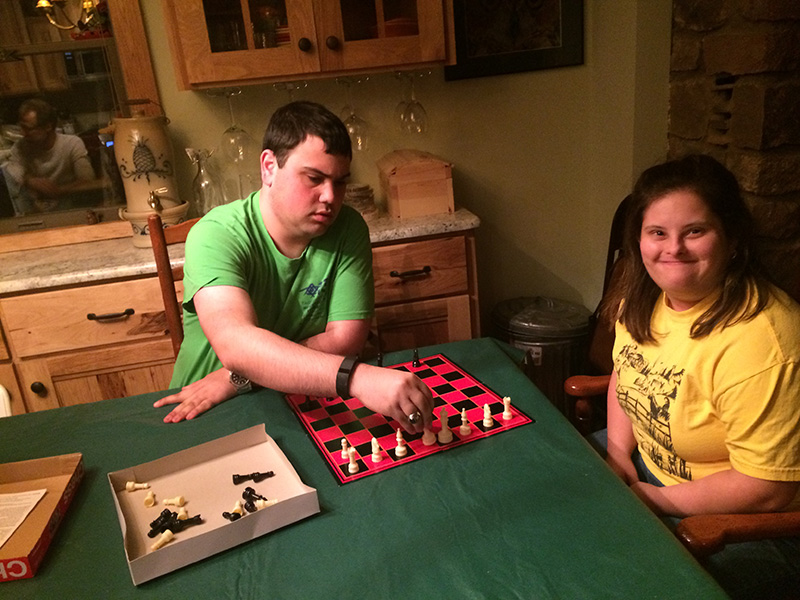 Making friends that last a lifetime
Making friends that last a lifetime

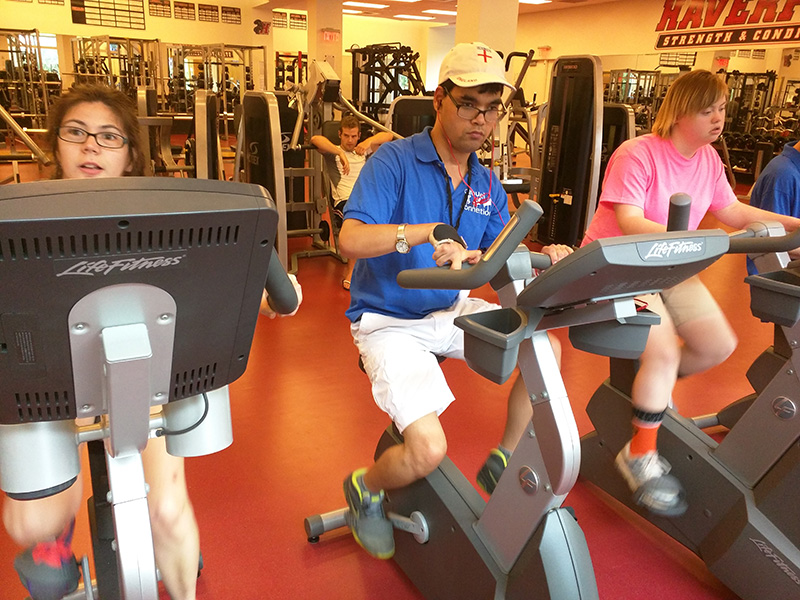
Routines
Living away from home involves taking care of chores and errands, as well as working through the rhythms and routines with apartment-mates. These routines provide a comfort and security to the day. Flexible roles of contribution are established. Participants manage their time within the structure of week days and weekends. Within each routine, there are must do tasks and choices. For example, the routine establishes that exercise takes place Monday – Friday (a “must do”). There is a choice in the type of exercise that each participant engages in (yoga, fitness center, walking on the Nature Trail, basketball or other sports, etc.). Participants are also encouraged to think about what routine and tools work best for them to support executive function and self-determination development. When thinking about when to complete laundry, a peer mentor may ask, “What time will you go to bed this evening? Let’s think about how much time it will take for your clothes to be washed, dried, and folded so that they are ready for tomorrow. Picture what your clean clothes pile will look like. Let’s include this on your to do list.”
At Carousel Connections, the kitchen provides a setting for social negotiation and offers ample cooking experiences. Cooking oriented goals include: planning and assisting in purchasing nutritious meals and snacks, assisting in meal and weekly menu preparation, storing food in appropriate places for cooking and eating, effectively and safely using utensils and appliances, setting the table for meals, washing and drying dishes. Individuals work with partners and staff members to plan and shop for meals. Discussions surrounding healthy and well-balanced menus, meal preparations, cleaning/organizing, food shopping, and working together in the kitchen take place throughout the duration of the program.
Living in the apartment setting requires initiation, planning, and problem solving. Instruction is given on how to care for the home (keeping things “tidy” and cleaning), use home equipment appropriately, follow a schedule for general housekeeping, and organize both private and shared spaces.
Roles
In addition to individual errands, each resident has a daily apartment chore. These may include helping to prepare dinner, walking the dog, vacuuming a shared living space, garbage duty, updating photos on social media, etc. By establishing these chores, roles are created and participants recognize and share their preferences. Each individual demonstrates how they contribute best to the apartment community. We encourage and nurture peer interactions by offering opportunities to engage as partners, in a small group, and with the full group of participants.


Cues and Social Strategies
We are always learning and growing! At Carousel Connections, participants can return to the program each summer with new goals in mind to build independence and self-advocacy skills. We develop skill building cues and strategies to promote this growth. In addition to individual cues, we use language within the apartment to establish a cohesive understanding. Social skills are consistently addressed throughout the curriculum in meaningful ways. Our social focus develops “reciprocity” that involve active listening, initiating and being part of conversation, and developing pragmatic language/interaction. Social language includes non-verbal language such as facial expressions, gestures, and physical proximity in various settings. Instruction is provided in both receptive language skills and expressive language skills (phrasing, prosody, figurative language, idioms, non-literal language). Conversations with peers and mentors further develops perspective taking and theory of mind skills. We use the term ‘social tool box’ to refer to skills that are modeled to help build healthy relationships, self-regulate emotions, and develop problem solving skills.
Communication skills that involve conversation by phone are also practiced and modeled. We emphasize that technology is a resource and tool to be used in future living situations for both check-in/social purposes with family and peers and also in the case that help is needed. Participants are encouraged to share with families and friends about the busy day and anticipated activities.
At Carousel Connections, we offer explicit instruction on executive processing skills. These skills include attention, monitoring and adapting behavior according to situations, scheduling and time management, organizing, prioritizing, and goal setting. Participants plan ahead when preparing meals, doing laundry, managing leisure activities, budgeting, etc. Participants adopt “expected” demeanor in the home, job, and community setting.
Planning Meetings
Being a member of a community involves making contributions and sharing talents. We host weekly planning meetings that allow individuals to share their preferences and ideas related to meal planning, activities and events, and “to do” chores for our home. This gathering allows individuals to share specific positive highlights or concerns related to the shared living space. Planning meetings also take place to help visualize and share expectations prior to a trip. Participants are empowered to take an active role while sharing preferences and organizing events. During each meeting, we record weekly events on calendars (either on an ipad/other technological device or written calendar), as well as any preparatory reminders.

